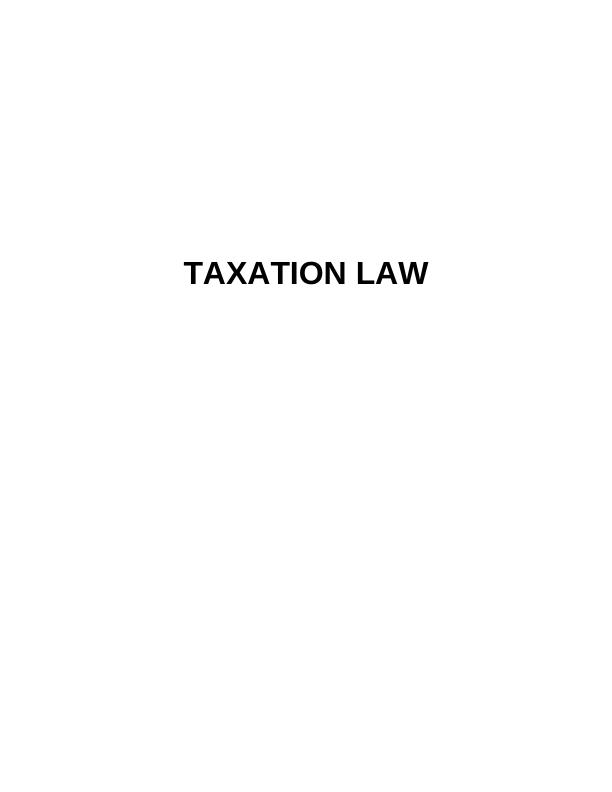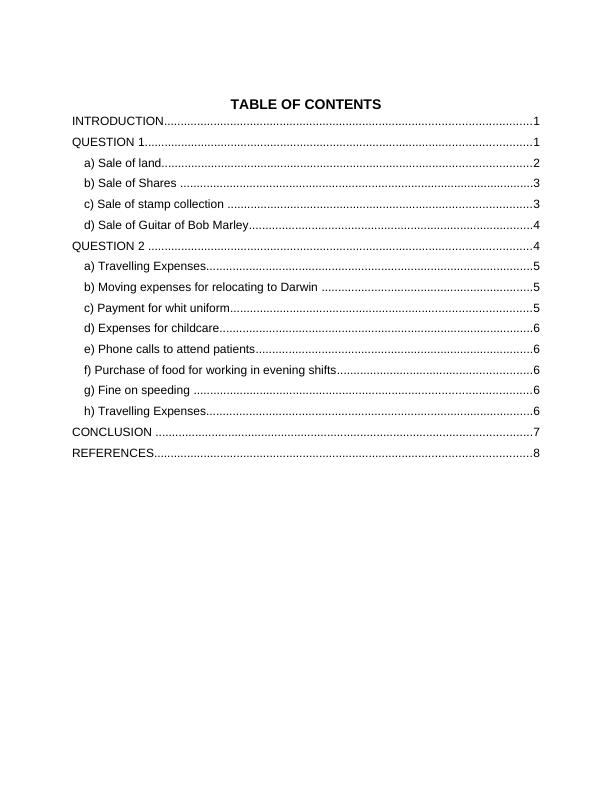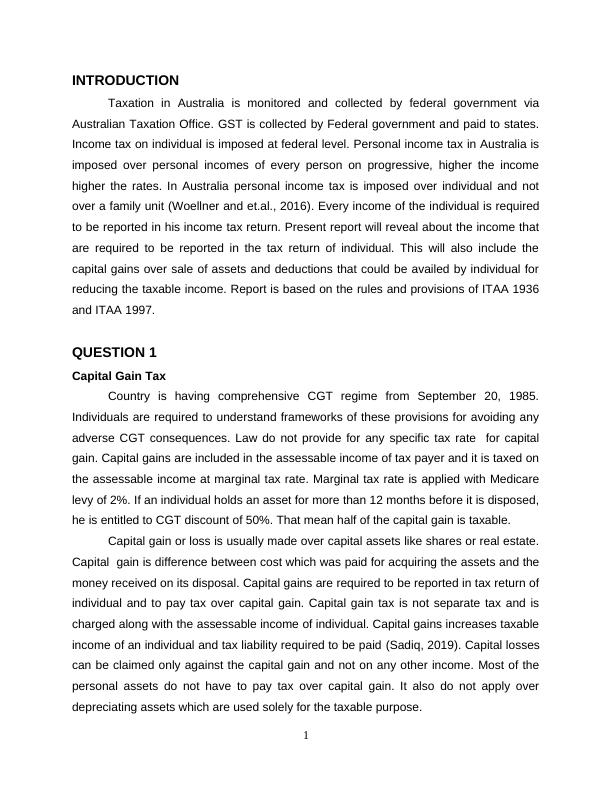Taxation Law: Capital Gains and Deductions
10 Pages2626 Words21 Views
Added on 2023-01-13
About This Document
This article provides an overview of capital gains tax and deductions in Australian taxation law. It explains the rules and provisions of ITAA 1936 and ITAA 1997. The article includes examples of capital gains on the sale of land, shares, stamp collection, and personal assets. It also discusses deductions for work-related expenses and limitations on private expenses. The information is relevant for individuals looking to understand their tax obligations and maximize deductions.
Taxation Law: Capital Gains and Deductions
Added on 2023-01-13
ShareRelated Documents
End of preview
Want to access all the pages? Upload your documents or become a member.
Understanding Australian Taxation Law: Capital Gains and Deductions
|10
|2664
|50
taxation law case study and some calculation
|10
|2633
|68
Australian Taxation Law - Capital Gains Tax
|11
|2461
|17
Taxation Law: Capital Gains Tax and Fringe Benefits Taxation
|16
|3946
|421
Taxation Law: Capital Gains Tax, Fringe Benefits and FBT Year
|16
|3450
|340
The relevant facts related to the sales
|13
|2423
|16



